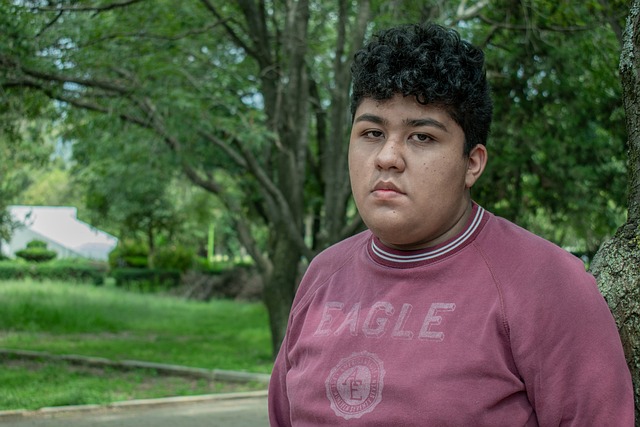A student manifestation meeting, where conduct is evaluated in relation to a student’s disability before a special education student is forced to move, is critical. This meeting can stop a forced student removal (for example, an expulsion) cold.
But what if the IEP (Individualized Education Program) team finds there is or isn’t a manifestation? How does that impact services which may be provided? Must the student receive a behavior evaluation and/or behavior supports? Maybe, but what is mandated depends on whether the student is being moved and what is in place already.

When Does a Manifestation IEP Meeting Usually Happen?
A manifestation IEP is a review meeting that typically occurs when a student is facing a school expulsion. They also happen when a student is forced out of school for more than ten days in a row or has a pattern of school exclusions over ten days, which result in a “change of placement” based on their closeness in time, their similarity, their length, the pattern of discipline, or other factors.
A “normal”‘ school move, that is sanctioned during a regular IEP team meeting, and agreed to by the student’s parents, is not one requiring a manifestation determination. However, a move forced on a special education student based on their conduct may warrant one, depending on how long it is, or the pattern of exclusions that school year.
Two Main Questions at Manifestation IEP Meetings
Typically, manifestation IEP teams limit their inquiry to whether the student’s conduct in question was caused by or is directly or substantially related to the student’s disabilities or is a direct result of a failure to implement the student’s IEP. If so, the conduct is said to be a manifestation of the student’s disability.
There are other questions the IEP manifestation team should answer as well, but sometimes they forget.

These additional questions surround whether an assessment is needed, whether support plans should be added or altered, and what behavior or other supports should be provided to help the student. Whether these items are required or not may depend on whether the student will be removed from their current school, or are able to remain.
Services When Manifestation Found
If a manifestation is found for an IEP student and the student was facing an expulsion, the expulsion process ends.
That student is then also entitled to:
- A Functional Behavioral Assessment (aka FBA), if one was not done already
- Implementation of a Behavior Intervention Plan (BIP) or
- Review of the BIP if one exists, and
- Modification of the BIP to address the behavior and
- Return of the student to their placement (unless out on a 45 day exclusion for weapons, drugs or serious bodily injury, or unless the parent agrees otherwise)
These items are mandated but still may be overlooked by manifestation IEP teams.
When No Manifestation, But Student Facing Move, Services May Still Be Required

When no manifestation is found, and a student is being removed from their placement (because they are being excluded pre-expulsion, after expulsion, due to an involuntary transfer or otherwise), the student may still be entitled to certain services and assessments.
School staff definitely can overlook their service and placement obligations for students where no manifestation is established. It seems schools think their job is done once conduct is found not to be a manifestation of the student’s disability. However, the student may still need help and additional supports to address the behavior.
Federal law requires that special education students receive the following, “as appropriate,” even if no manifestation is found, when the student is facing a change of placement:
- The student’s educational services, even if in a new environment, which enable the student to participate in the general education curriculum and progress toward their IEP goals.
- A Functional Behavioral Assessment (FBA) and
- Behavioral intervention services and modifications, which are designed to address the behavior violation to prevent its reoccurrence.
This applies if an IEP student is being moved based on their conduct, and even if disability manifestation is not found. The only variable is what is “appropriate” for the student. With behavior so severe it led to an expulsion recommendation, it is arguable that the student needs an FBA and behavioral support. If the school does not offer this, parents can request it.
When No Manifestation Found, But Student Remains in Their Placement
If no manifestation finding is made by the IEP team, but the student returns to their same placement, there is no mention of similar behavioral supports or evaluations. However, parents can still request a behavioral assessment and additional supports to help the student.
Districts Are Prone To Deny Manifestation

In my experience, IEP teams usually will deny a student’s conduct is directly related to their disabling conditions, as then discipline or involuntary transfers can proceed. Sometimes this is an accurate statement, and sometimes it is not.
It is important that parents advocate for a finding of manifestation, if possible, to ensure the student is returned to their placement and that services proceed rather than punishment.
But, even if no manifestation is found, a student moved may still receive assessments and supports, and should be in a placement where they can access a general education environment and make progress toward their IEP goals.
Attorney Michelle Ball has assisted special education parents since the mid-1990s with IEPs, manifestation meetings, 504s and many student issues. As a lawyer for students in downtown Sacramento, she reaches across California, to all areas, including Fremont, Hanford, San Diego, Tahoe, Folsom and many other locations.

